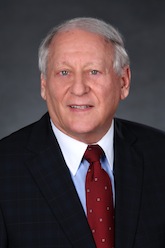BLOG
 For the second consecutive day, an article about important issues for community associations written by one of our firm’s attorneys appeared today in the Daily Business Review, South Florida’s only business daily and official court newspaper. The article by Michael L. Hyman focuses on a recent foreclosure case in which a condominium association was ultimately done in by its own initial pleadings stating that it was only entitled to a capped amount. His article reads:
For the second consecutive day, an article about important issues for community associations written by one of our firm’s attorneys appeared today in the Daily Business Review, South Florida’s only business daily and official court newspaper. The article by Michael L. Hyman focuses on a recent foreclosure case in which a condominium association was ultimately done in by its own initial pleadings stating that it was only entitled to a capped amount. His article reads:
In the case of Bank of America v. The Enclave at Richmond Place Condominium Association, Bank of America appealed the trial court’s decision that it was not entitled to the statutory “safe harbor” liability caps for past-due association assessments for foreclosing lenders. The Second District Court of Appeal reversed the lower court’s ruling, and it based its decision on the association’s own initial responses and pleadings from the onset of the foreclosure proceedings.
The appellate panel found that in its answer to BoA’s initial foreclosure filing, the association affirmatively pleaded:
“The mortgage which is being foreclosed is a first purchase money mortgage which was recorded after April 1, 1992. Pursuant to Fla. Stat. § 718.116, the plaintiff’s lien is superior to any title and interest to any condominium assessments, except for those unpaid dues, which are not to exceed six months’ unpaid assessments or one percent of the original principal balance of the mortgage, whichever is less.”
After BoA acquired the property, the association claimed it was entitled to more than $36,000 in unpaid assessments, interest and various fees. BoA responded by filing a motion to enforce the final judgment, contending that it was liable for only $1,421, which represented 1 percent of the original mortgage debt, the lesser of the two amounts.
The trial court found that it had continuing jurisdiction and could therefore address BoA’s motion, and it ruled that BoA was not entitled to the benefit of the safe harbor provision.
Michael’s article concludes:
In its appeal, BoA argued that the association is estopped from taking a position contrary to that which it affirmatively took in the underlying foreclosure proceeding. The appellate panel agreed, noting in its opinion:
“We conclude that the Association’s affirmative plea of entitlement to only the lesser of six months’ unpaid assessments or one percent of the mortgage debt was a waiver of any claim to a greater assessment figure.”
The takeaway for community associations and their attorneys from this ruling is very clear and extremely important. Rather than being so specific and referencing its own governing documents in the initial pleadings, associations and their legal counsel should use the initial pleading in response to a lender’s foreclosure filing simply to state that it would be entitled to the safe harbor amounts should those caps be deemed to apply.
In addition, if during the course of the proceedings the association and its attorneys determine that they plan to call into question the applicability of the safe harbor liability caps or the provisions of the governing documents, the association must withdraw or amend its related pleadings and affirmative responses prior to the final judgment and the issuance of an estoppel stating the amount that it seeks to collect.
Our firm congratulates Michael for sharing his insights into this important new appellate ruling for Florida community associations with the readers of the Daily Business Review. Click here to read the complete article in the newspaper’s website (registration required).


